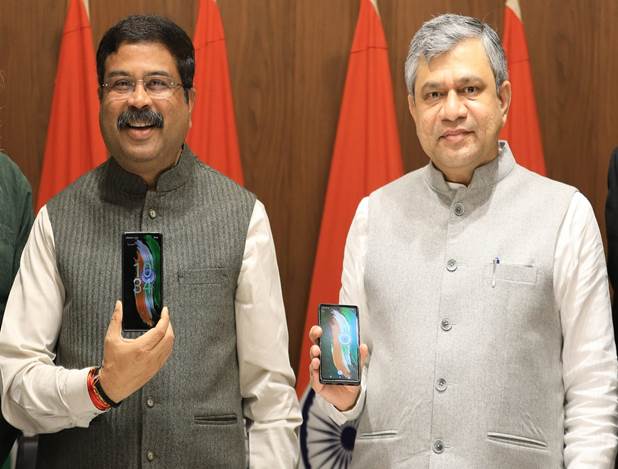
 By Venkatesh Raghavan
By Venkatesh Raghavan
Chennai: An indigenous Operating System (OS) for Android mobiles ‘BharOS’, developed under the stewardship of the Indian Institute of Technology (IIT) Madras, was successfully tested and is now being pressed into service for use in both government and public systems. Providing the icing on the cake for Prime Minister Narendra Modi’s drive to make in India, the software app is a free and open-source operating system.
Education minister Dharmendra Pradhan who additionally has portfolios of electronics, communication and Information Technology (IT) announced that BharOS has been successfully tested. “Technocrats, innovators, industries and policymakers and academic institutions of our country herald this as a great step ahead in the Centre’s push for make-in-India. It was envisioned by our Prime Minister Narendra Modi eight years ago,” he added.
The OS or software acts as a core interface on smartphones that include Google’s Android and also Apple’s iOS. Telecom Minister Ashwini Vaishnaw however, sounded a cautionary note. “The journey ahead will be steeped with difficulties owing to people from around the world seeking to disband our self-reliant model. We have to be prepared to overcome such hardships and cross over to safe shores,” he sounded.
BharOS, an Indian government-funded project aims to reduce the heavy dependence on foreign OS Indian mobile users are faced with in their smartphones. The vision is to promote the usage of locally developed technology. “The government hopes to come up with an indigenous and self-reliant ecosystem in the future,” the minister said. The prime focus areas that BharOS addresses are security and privacy issues. Currently, the OS is catering to organizations that require stringent privacy norms, those handling sensitive information and confidential communications within mobile telephony. It also envisages use by such organizations for purpose of having access to private cloud services via private 5G networks.
The seeds of this innovation were sown when IIT Madras set up the Pravatak Technologies Foundation, a non-profit organization that went on to foster JandK Operations Private Limited, which was directly involved in the development. The funding was managed by the Government of India’s Department of Science and Technology.
The government aims to put India on the global map of a handful of countries that already possess these capabilities. “This endeavour will provide users more freedom, control and flexibility to select and avail of apps that suit their customized needs. In short, it’s a revolution in the realms of smartphone security and privacy preferences,” said Prof V Kamakoti, Director of IIT Madras. The professor also expressed the keenness of IIT Madras to keep increasingly partnering with private industries and government agencies to strategically promote and market the usage of BharOS in India.
The innovation permits the user to avoid using apps that they don’t trust and there is no coercion involved in any choice they don’t wish to make. Trust and user familiarity are the two elements that BharOS leverages to cater to increased control for mobile users.




